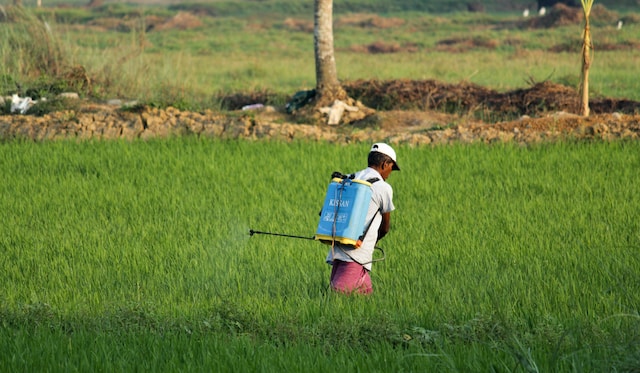Introduction to Pest Control for Thai Cannabis Farms
As the Thai cannabis industry continues to grow, so does the need for effective pest control methods. While traditional chemical pesticides might be effective, they can cause harm to both the environment and human health. This article explores the challenges of pest control in Thai cannabis farms and introduces the 5 best organic solutions for maintaining a healthy, thriving crop.
Challenges of Pest Control in Thai Cannabis Farms
Thai cannabis farms face several challenges when it comes to pest control. The hot and humid climate in Thailand provides an ideal breeding ground for various pests, such as spider mites, aphids, and caterpillars. Additionally, the increasing demand for cannabis products puts pressure on farmers to maintain high yields and quality, making pest control even more critical.
The Importance of Organic Pest Control
Organic pest control methods are not only effective but also offer several benefits over conventional chemical pesticides.
Environmental Benefits
Organic pest control methods are more sustainable and have a lower impact on the environment. They help maintain biodiversity by not harming beneficial insects and microorganisms. Moreover, they do not leave harmful residues in the soil or water sources.
Health Benefits
Organic pest control solutions are safer for both cannabis consumers and farmworkers. They do not contain synthetic chemicals that can be harmful when ingested or absorbed through the skin. By choosing organic methods, farmers can ensure a cleaner, healthier product for their customers.
5 Best Organic Solutions for Pest Control
The following organic solutions are effective at controlling pests while protecting the environment and human health:
1. Neem Oil
Neem oil is a natural pesticide derived from the seeds of the neem tree. It is effective against various pests, such as aphids, whiteflies, and spider mites, without harming beneficial insects.
Application Method
Mix neem oil with water and a small amount of mild soap to create a spray solution. Apply the mixture to the cannabis plants, making sure to cover all surfaces. Repeat the process every 7-10 days or as needed.
2. Diatomaceous Earth
Diatomaceous earth (DE) is a natural, non-toxic powder made from fossilized diatoms. It works by damaging the exoskeletons of insects, causing them to dehydrate and die.
Application Method
Sprinkle a thin layer of DE around the base of the cannabis plants and on the leaves’ surface. Reapply after heavy rain or watering, as moisture can reduce its effectiveness.
3. Beneficial Insects
Introducing beneficial insects to the
cannabis farm can help control pests naturally. These insects prey on common cannabis pests, keeping their population in check without the need for chemical interventions.
Common Beneficial Insects
Some beneficial insects to consider for your Thai cannabis farm include ladybugs, lacewings, and predatory mites. These insects can be purchased from specialized suppliers or attracted to the farm by planting specific plants known to attract them.
4. Bacillus thuringiensis (Bt)
Bacillus thuringiensis (Bt) is a naturally occurring soil bacterium that produces proteins toxic to certain insects, such as caterpillars. It is safe for humans, animals, and beneficial insects, making it an excellent organic pest control option.
Application Method
Bt is available in the form of a powder or liquid concentrate. Mix the product according to the manufacturer’s instructions and apply it to the affected cannabis plants. Reapply every 7-10 days or as needed, as Bt loses its potency over time.
5. Companion Planting
Companion planting involves growing specific plants alongside cannabis to help deter pests or attract beneficial insects. This method not only provides a natural form of pest control but also adds diversity to the farm, promoting a healthier ecosystem.
Effective Companion Plants
Some companion plants that can help control pests in Thai cannabis farms include marigolds, which repel aphids and whiteflies; basil, which deters flies and mosquitoes; and yarrow, which attracts beneficial insects like ladybugs.
Conclusion
Organic pest control methods are essential for maintaining a healthy and sustainable Thai cannabis farm. By implementing the 5 best organic solutions discussed in this article, farmers can effectively combat pests while minimizing their impact on the environment and human health.
Frequently Asked Questions
- Can organic pest control methods be as effective as chemical pesticides?
Yes, organic pest control methods can be as effective as chemical pesticides, especially when used correctly and consistently. They may require more frequent applications or a combination of methods, but they offer numerous benefits over conventional pesticides.
- Are organic pest control methods more expensive than chemical pesticides?
Some organic pest control methods, such as beneficial insects or companion planting, can be cost-effective and even save money in the long run by reducing the need for chemical interventions. However, other methods, like neem oil or Bt, may have a higher initial cost than their chemical counterparts.
- How can I attract beneficial insects to my cannabis farm?
You can attract beneficial insects by planting specific plants known to draw them to the area, such as yarrow, dill, or fennel. Providing a diverse habitat and avoiding the use of chemical pesticides will also encourage beneficial insects to thrive on your farm.
- Can I use more than one organic pest control method at a time?
Absolutely! Combining multiple organic pest control methods can increase their effectiveness and provide a more comprehensive approach to managing pests on your Thai cannabis farm.
- Do I need to reapply organic pest control methods frequently?
The frequency of reapplication depends on the specific method being used. Some organic pest control methods, like neem oil or Bt, may require reapplication every 7-10 days or as needed, while others, like co
